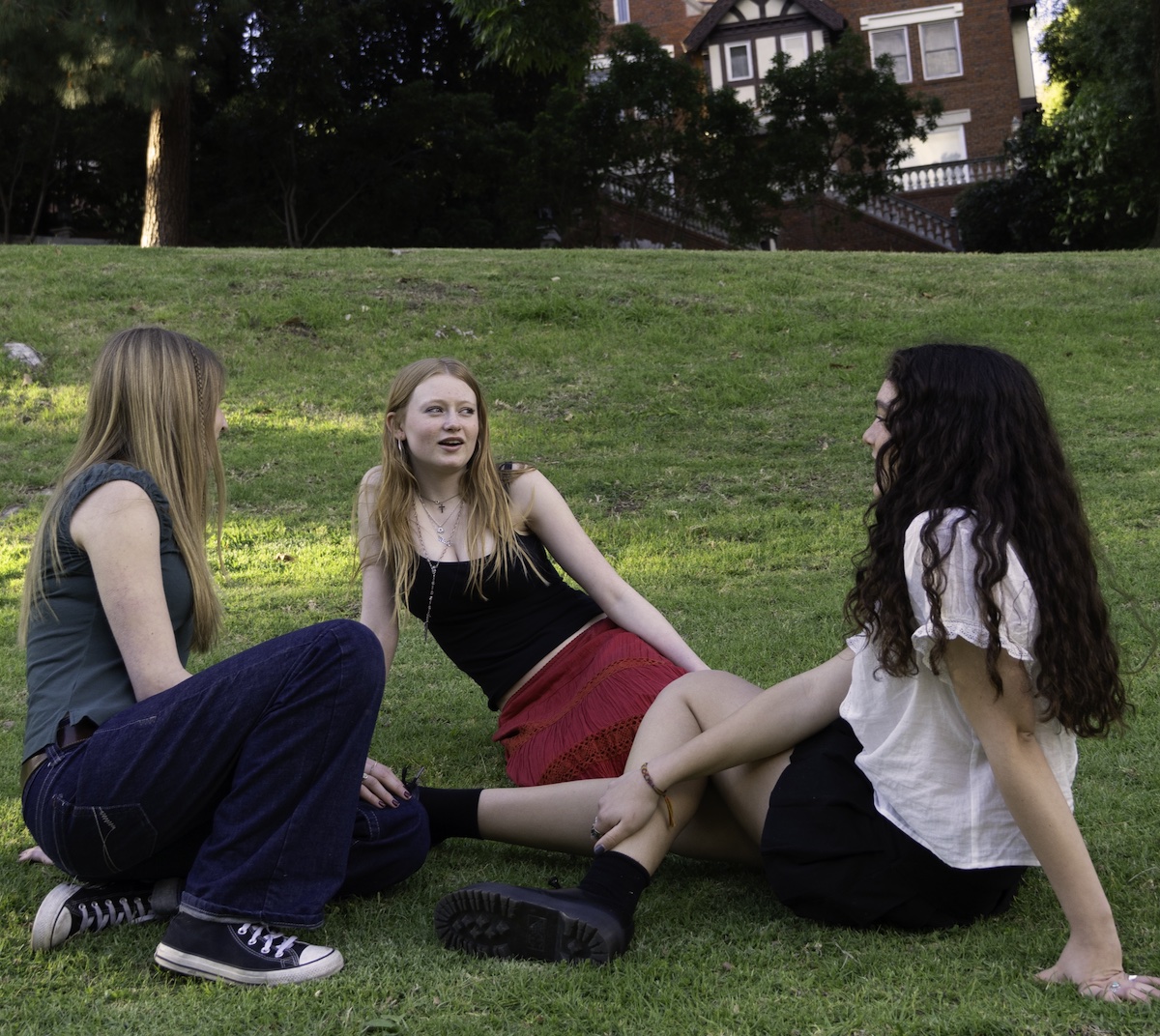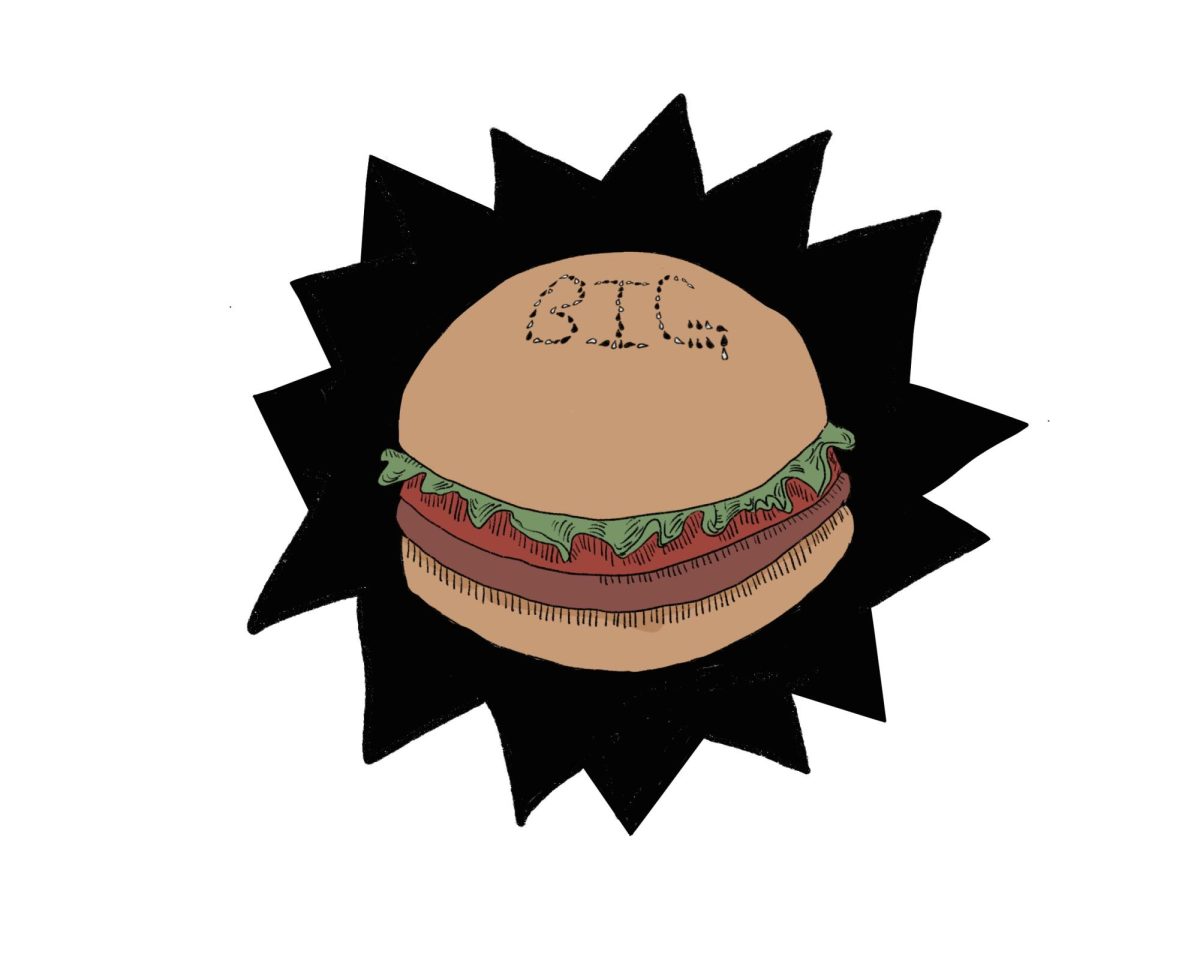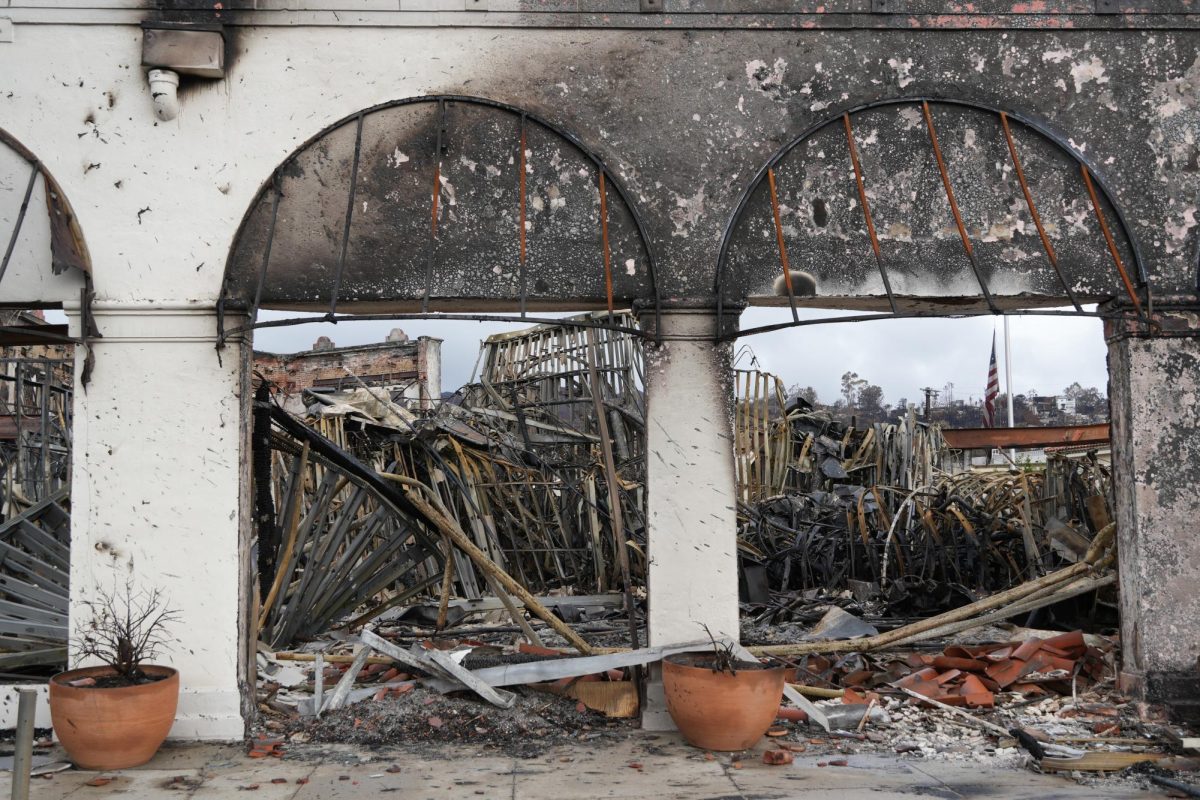
Introduction
There is a running joke among Marlborough faculty that when we do something once, it becomes a tradition. Spirit Week, for example, has only existed for 10 years, yet has become a staple of the Marlborough experience. How quickly some of these traditions come and go brings into question the meaning of tradition itself. Is tradition determined by how long something has existed? Or by how beloved it is within the Marlborough community? Why do some old traditions still exist, but others have disappeared over time?
Founded in 1889, Marlborough has a long history, rich with tradition. While some of Marlborough’s iconic traditions have prevailed since the school was established, others have been discontinued, or simply lost traction over the years. Likewise, some of our current traditions have recently sparked controversy, and could be next on the chopping block.
COVID-19, alongside other changes in the school’s mission and strategy, have caused Marlborough to reevaluate many of its traditions, leading to a multitude of lost and reformed traditions. During this time of transition for the school and world, The UltraViolet wanted to reflect on and highlight the traditions of our past.
Lost Traditions
You’re probably familiar with Pumpkin Day, Winterfest and all the other traditions that are just so inherently Marlborough. If you have an older sibling who attended the school, you might even know of the Big-Little Sister program. But have you ever heard of the Unsung Heroines Ceremony or the Violets song?
“The basis of Marlborough is tradition, and it needs to be remembered and continued with new traditions,” Alumna Mary Ann Hooker Sturgeon ‘56 said.
One such example was the Unsung Heroines ceremony, which began as an opportunity for teachers to give praise to their students. Over time, it became an award ceremony for students who participated in the Red Cross team, and the focus shifted away from teachers spotlighting the student body.
“It just sort of lost its luster,” 12th grade dean Allison Moser said. “And so we switched up.”
Another lost event involved learning how to properly write letters, a tradition which highlights the school’s age and evolution. In the 1950s, the head of school hosted an event with each 9th grade class to teach students how to write both a formal invitation and an acceptance to one using fine stationery and fountain pens.
“These traditions weren’t worthy of continuing into another era of time,” Sturgeon said. “There are funny things that we did because life was very different.”
The Holiday Sing-Along is yet another discontinued tradition, which ended in December of 2018.
“[Former Head of School] Barbara Wagner always loved hosting a holiday sing-along,” Moser said. “So students would go from their last final exam over to Caswell to do a holiday sing along while Winterfest was being set up. It was sort of a logistics thing, but it was also nice because Barbara Wagner, historically, was a music teacher and she was a vocal choral instructor, so that was one of her values.”
As the last class to experience this, the class of 2022 has fond memories of this tradition.
“I remember it being really fun and silly,” Elise ’22 said. “It was special because it was my first Winterfest. There are a lot of things in my seventh grade year that I don’t remember, but I remember that.”
Reformed Traditions
However, some of these “lost” traditions are not so lost after-all, but simply revised and reformed. While certain traditions no longer exist, many have merely evolved over time or been replaced by a similar new tradition.
For instance, “Violets” is Marlborough’s original school song. The “Violets” song has since been replaced by the Alma Mater, which was written and composed by a student in 1954. However, the Alma Mater was not written with the intention of replacing Violets.
Sturgeon expressed disappointment that the Violets song is no longer a tradition.
“It was quite a meaningful song, and I wish it were still sung at important school celebrations and alumni events,” she said.
Winterfest is another long-standing tradition that continues to this day, but has undergone a major overhaul. Among current Marlborough students, Winterfest is known for both the sweet treats available as well as activities, such as photo booths and raffles, offered.
In the past, students would pay out of pocket to participate in the event.
“You could spend lots of money trying to win the raffles, or you might not,” Moser said. “But now, everybody gets the same number of tickets and everybody has the same chances of winning.”
In many cases, the essence of a tradition has remained largely the same, but adjustments have been made to make the tradition more equitable.
For example, the school’s move to gender inclusivity has impacted a number of other traditions, including the Father-Daughter Picnic and Mother-Daughter Valentine’s Day Lunch, both of which are now titled as community events instead to avoid gendered language.
“[The name] ‘Father-Daughter’ in itself excludes people,” Director of Enrollment Management and Community Engagement Jeanette Woo Chitjian said.
Similarly, other traditions have changed to be more inclusive. Notably, the location of parent dinners have moved from parents’ homes to Marlborough’s campus, and the Senior Luncheon, which used to be hosted at country clubs, now takes place at a restaurant or in Marlborough’s Alumni Garden.
“We want everybody to feel welcome, not just by our actions, but how we invite people,” Woo Chitjian said.
The orientation process for new students has also undergone drastic changes. The old method was a ‘little sister’ pairing between seventh graders and eighth graders.
“Sometimes [student pairings] were great,” Woo Chitjian said. “Sometimes they kind of fell flat.”
For the last two summers, 7th Grade Dean Kendall Beeman has facilitated a different opportunity for new 7th graders to talk to older students.
“During the summer, new students can Zoom into mentor groups (led by 8th graders) and join online PALs parties,” Woo Chitjian said. “They range from conversations to friendship bracelet making to tie-dye t-shirts to how to prepare and cook chocolate chip pancakes.”
While letting go of the Big-Little Sister program, the school has also expanded Violets 101, a three-day orientation program in which new students hear from faculty members and attend short classes. Previously, Violets 101 had been taught by Marlborough graduates.
“It’s interesting to see which traditions stick,” Moser said.

Fading Traditions
As Marlborough’s cultural climate and mission statement evolves, due to controversy or unpopularity within the community some current traditions could soon be added to the list of lost traditions.
Marlborough, which used to be a finishing school for girls, is now a much more progressive and diverse community. As a result, the school grapples with how to reconcile tradition and progress.
“Yes, we’re 130 years old, but our mission and strategic plan are updated every ten years,” Moser said. “I’m not the same as I was 20 years ago, and neither is Marlborough.”
One such tradition is the matching white graduation dresses, which has remained an integral Marlborough tradition since its founding.
The first year that there was any differentiation in graduation attire was in 2012, when a student didn’t feel comfortable wearing a dress, so they wore a pantsuit instead. After that, others also began to personalize their graduation attire. Some wore wraps over the white dress for modesty, and others donned suits.
However, in 2021, the graduation attire underwent significant change because COVID-19 had a major impact on the feasibility of matching white dresses. Seniors weren’t able to gather together to choose the dress, try them on or take measurements. There had been discussion of introducing caps and gowns at graduation for years, but nothing came into fruition until 2021.
“We had this unique opportunity to look at these things that we always do — these traditions — and say: are we doing this in the best way possible to serve us?” Moser said.
The class of 2021 student council decided to introduce caps and gowns as an additional option. They felt the cap and gown would honor all the students because it was more equitable from a gender, financial and environmental equity standpoint.
However, this year, COVID-19 restrictions have decreased as students have returned to school in-person, allowing the class of 2022 the freedom to choose what graduation attire options are available to students. Ultimately, the cap and gown and dress options are carrying over from the past year.
“I don’t see us ever getting rid of the cap and gown option just because it’s academic tradition,” Moser explained. “Gowns are academic, and this is an academic degree that you’re getting.”
This begs the question of whether Marlborough is moving towards cap and gown graduation attire permanently.
“I would love to switch to all gowns,” Moser said. “If you want to have the white dress experience, you still can, but just wear it under the gown during the ceremony.”
On the other hand, some students hope that the school maintains the tradition of white graduation dresses or suits, instead of or in addition to caps and gowns.
“If the administration decides to eliminate the white dress altogether, it would make me really sad since it has been around for so long,” Eva ‘22 said.
Another tradition that could be coming to an end soon is the senior class Hawaii trip that has taken place every May before graduation for the past 30 years. Once again, COVID-19 has changed the way that we think about certain traditions. Due to COVID-19 related travel restrictions, the class of 2021 was unable to travel at all, and depending on restrictions come May, the class of 2022’s senior trip might look different too.
Another concern presented about the Hawaii trip was whether Marlborough was adequately honoring native Hawaiian land and peoples. The senior class met on Community Day on Nov. 3 to brainstorm ways to safely and respectfully travel to Hawaii, and also come up with some alternative options.
Some seniors, however, want to figure out a way to be both COVID-19 safe and respectful to native peoples, while maintaining the tradition of traveling to Hawaii.
“I think we can still go to Hawaii, but to address the concerns about tourism I think it is a great idea to learn about the native cultures before we travel,” Ezra ‘22 said.
For the time being, it is still unclear whether the Hawaii trip will be back in action this spring, or whether it is on the path to becoming yet another one of Marlborough’s lost traditions.
Finally, some of Marlborough’s longest standing and most recognized traditions, Pin Ceremony in 9th and Ring Ceremony in 11th, seem to be losing traction, at least within the student body. For instance, according to a survey sent to students, over 30% of respondents would like to discontinue Pin Ceremony, and 13% Ring Ceremony.
“Some of Marlborough’s traditions seem fairly ridiculous; especially the Ring and Pin Ceremonies,” an anonymous student said. “I know that the traditions are relevant for alumni, but they seem sort of pointless to us.”
Despite some unpopularity, Pin and Ring ceremonies are still very significant to other members of the community.
Sturgeon described what Ring Ceremony used to look like, and why it is of importance to her.
“We all sat in the shape of an “M” in Caswell hall, wearing our white uniforms with corsages of our class colors. she said. “It was very traditional and very special. My mother had graduated from Marlborough, so I actually got to wear her ring, which was quite meaningful to me.”
In addition to alumni, some current students still hold Pin and Ring Ceremonies in high regard.
“As someone who has always looked up to upperclassmen, I have always wanted to take part in these time honored traditions like Pin and Ring Ceremonies,” Brodie ’22 said.
These events have even become some student’s favorite traditions.
“Ring ceremony is my personal favorite tradition,” Eva said. “My mom is a Marlborough alumna, so her initials are on my ring. Also, it is something that students can look forward to since the beginning of their Marlborough career.”
Pumpkin Day 1993 vs. 2021












